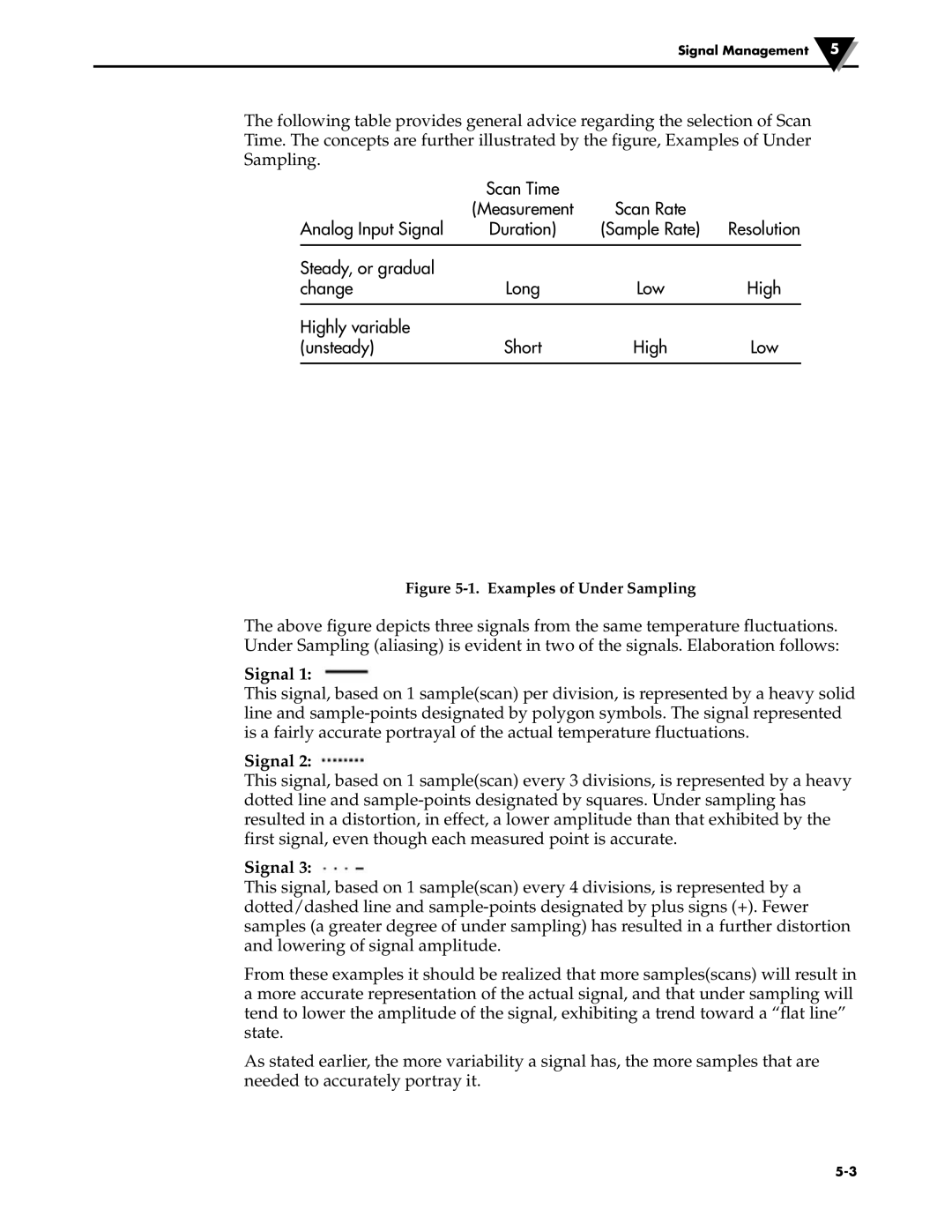
Signal Management 5
The following table provides general advice regarding the selection of Scan Time. The concepts are further illustrated by the figure, Examples of Under Sampling.
| Scan Time |
|
|
| (Measurement | Scan Rate |
|
Analog Input Signal | Duration) | (Sample Rate) | Resolution |
|
|
|
|
Steady, or gradual |
|
|
|
change | Long | Low | High |
|
|
|
|
Highly variable |
|
|
|
(unsteady) | Short | High | Low |
|
|
|
|
Figure 5-1. Examples of Under Sampling
The above figure depicts three signals from the same temperature fluctuations. Under Sampling (aliasing) is evident in two of the signals. Elaboration follows:
Signal 1:
This signal, based on 1 sample(scan) per division, is represented by a heavy solid line and
Signal 2: ![]()
This signal, based on 1 sample(scan) every 3 divisions, is represented by a heavy dotted line and
Signal 3: ![]()
This signal, based on 1 sample(scan) every 4 divisions, is represented by a dotted/dashed line and
From these examples it should be realized that more samples(scans) will result in a more accurate representation of the actual signal, and that under sampling will tend to lower the amplitude of the signal, exhibiting a trend toward a “flat line” state.
As stated earlier, the more variability a signal has, the more samples that are needed to accurately portray it.
